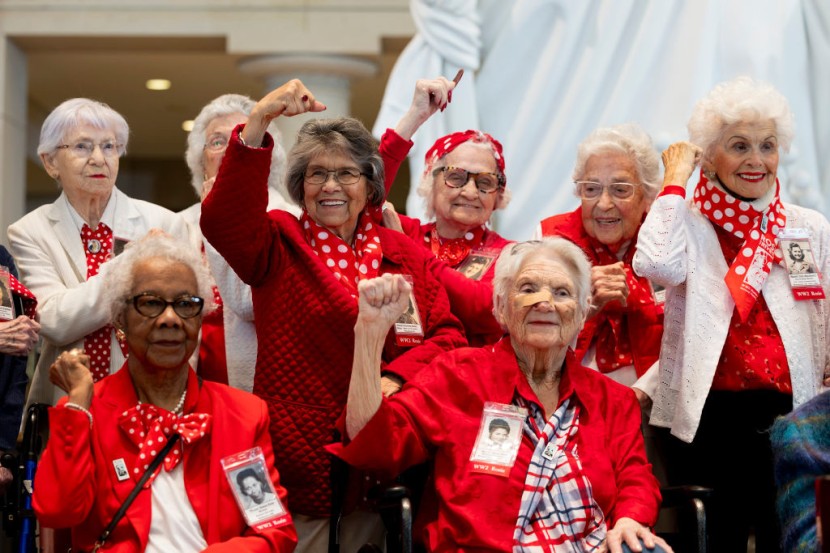
Surviving World War II female industrial workers who manned the production lines while the men went off to war converged in Washington on Wednesday (Apr. 10) to receive the Congressional Gold Medal, the highest civilian award granted by Capitol Hill.
A group of 27 "Rosies" aged in their 90s-with the oldest aged 106- were clad in red polka-dot scarves and other pieces of clothing as they humanized and immortalized "Rosie the Riveter," a 1942 poster character portrayed wearing coveralls, hair tied in a bandana, and flexing her right arm. The name "Rosie" was often associated in the "We Can Do It!" poster created by J. Howard Miller for the Westinghouse Electric & Manufacturing Company.
The following year, American painter Norman Rockwell released his own version of Rosie for the cover of the "Saturday Evening Post," PBS reported.
Work conditions were so dangerous that between the 1941 bombing of Pearl Harbor and the D-Day invasion of Europe in 1944, there were more industrial casualties than military casualties, according to the National Park Service.
"This medal represents the millions of American women who went to work during World War II," Mae Krier, a Rosie who built aircraft during the war, said at Wednesday's ceremony. "We helped our country win the war."
She also said that the women who joined the workforce during the war proved their worth and were trailblazers for later generations.
"Up until 1941, it was a man's world," Krier added. "They didn't know how capable us women were, did they?"
Many of the Rosies were forced out of their jobs - and the workforce altogether - when the men returned from the war. The award, according to the Rosies, was a recognition not only of their pivotal role in the war but also the capability of women in general.
"We weren't in the trenches, but we built everything that our fighting men needed," Krier told PBS affiliate WHYY before traveling to Washington. "And I thought that they should at least give us credit for what we did."
© 2026 HNGN, All rights reserved. Do not reproduce without permission.








